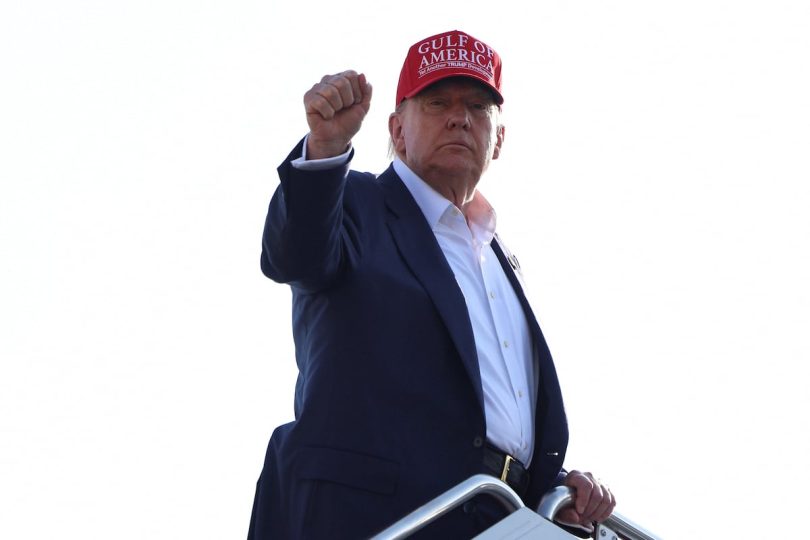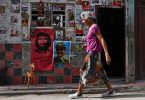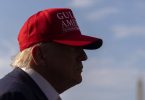While Cuba is not exactly a foreign policy front that keeps anyone in Washington awake at night — since it is more focused on making the United States great again — the White House recalled this week a phrase Donald Trump said during his electoral campaign that strengthened the sympathies of his loyal Cuban-American voters: “As president, I will again stand with the people of Cuba in their long quest for justice, liberty and freedom.”
On Monday, Trump signed a memorandum on “strengthening the policy of the United States toward Cuba.” However, among economists, the prevailing view is that this is “more of the same.” With the document, the White House made public its intentions to limit tourism to the island, foreign investment, and reinforce the economic embargo that has been in place since the early 1960s. All these objectives align with the policy Trump had already been applying since his first term and maintained when he returned to power in January.
The economic restrictions imposed by the Trump administration since it first took office in 2016, in addition to the deep crisis facing the Cuban economic system and model, have strangled the country after the temporary relief Barack Obama brought to the island by restoring diplomatic relations after several decades. The Republican rolled back travel rules that allowed U.S. tourists to land in Cuba, halted shore-to-shore trade, and limited remittances — one of the biggest sources of income for the island’s economy.
Following Trump’s first term, Joe Biden paid very little attention to Cuba during his four years in office, and most of these restrictions remained in place. Six days before ending his term, Biden removed Cuba from the list of state sponsors of terrorism, where Trump placed it back exactly six days after taking office for a second term.
Now, the White House has announced that the National Security Presidential Memorandum (NSPM) fully reverses some concessions made by the Biden administration, which “eased pressure on the Cuban regime,” and “ends economic practices that disproportionately benefit the Cuban government, military, intelligence, or security agencies at the expense of the Cuban people.”
The document includes a ban on direct or indirect financial transactions with entities controlled by the Castro military leadership, such as the Business Administration Group S.A. (GAESA) and its subsidiaries — something Secretary of State Marco Rubio, a Cuban-American, announced in February as part of measures aimed at choking Havana. The White House fact sheet on NSPM also states that, in order to “discourage dangerous, unlawful migration,” the government will ensure that the “Wet Foot, Dry Foot” policy is not reinstated. That policy, eliminated by Obama, had protected Cuban citizens who managed to set foot on U.S. soil.
The US will help expand internet services
The memorandum states that the United States will increase “efforts to support the Cuban people through the expansion of internet services, free press, free enterprise, free association, and lawful travel.” It also argues that it advances the interests of the Cuban people by “promoting human rights, fostering a private sector independent of government control, and enhancing national security.”
According to the statement, all this stems from President Trump’s commitment to “fostering a free and democratic Cuba, addressing the Cuban people’s long-standing suffering under a Communist regime.”
The announcement also made it clear that it will impose legal restrictions on U.S. tourism to Cuba, although the island is far from the destination that once received cruise ships and dozens of daily flights from the North, full of visitors eager to see the last Communist stronghold in the West.
For this reason, Cuban economist Omar Everleny Pérez Villanueva, former director of the Center for Cuban Economic Studies at the University of Havana, believes that the measures announced by Trump on Monday continue a pattern the Republican has been following for a long time. For example, Trump’s government has made other moves such as restricting visas for people linked to Cuba; reactivating Title III of the Helms-Burton Act, which allows U.S. citizens to take legal action against companies or people managing “assets confiscated by the Cuban regime” after 1959; and banning remittances to Cuba that are sent through the company Orbit S.A.
“All these new measures tend to reinforce the U.S. blockade of Cuba, but they wouldn’t be a major blow because they are already being implemented,” Everleny says. “That is to say, many of the foreign companies with ties to Cuba have already been pressured, and American tourists are no longer coming to the country as they used to.”
The economist believes foreign investment in the country will be even more affected at a time when tourism has notably declined (in 2018, 4.6 million tourists arrived; in 2021, the country received 2.2 million). However, he does not think this is due solely to the embargo.
According to Everleny, many large firms have stopped doing business in Cuba, “not only because of Trump’s sanctions, but also because of the lack of credibility of the Cuban government, which ultimately doesn’t pay them.” He continues: “Before this memorandum, you can see that, in the last five months, tourism has fallen almost 30%, and this trend has multiple factors, such as the severe internal economic crisis, blackouts, and poor quality of services. There are many things conspiring against tourism development in Cuba. It’s a mix; you can’t say those measures are the only reason there’s no tourism or foreign investment.”
Cuba’s Foreign Minister Bruno Rodríguez called the policy on X [formerly Twitter] “a criminal act and a violation of the human rights of an entire nation.” What is clear is that ultimately, the ones harmed are Cuban families struggling with hours of blackouts and shortages of medicine and food. “If you pressure the companies that provide some oxygen, and now they cannot do so, it will obviously affect ordinary Cubans,” Everleny argues.
Sign up for our weekly newsletter to get more English-language news coverage from EL PAÍS USA Edition










